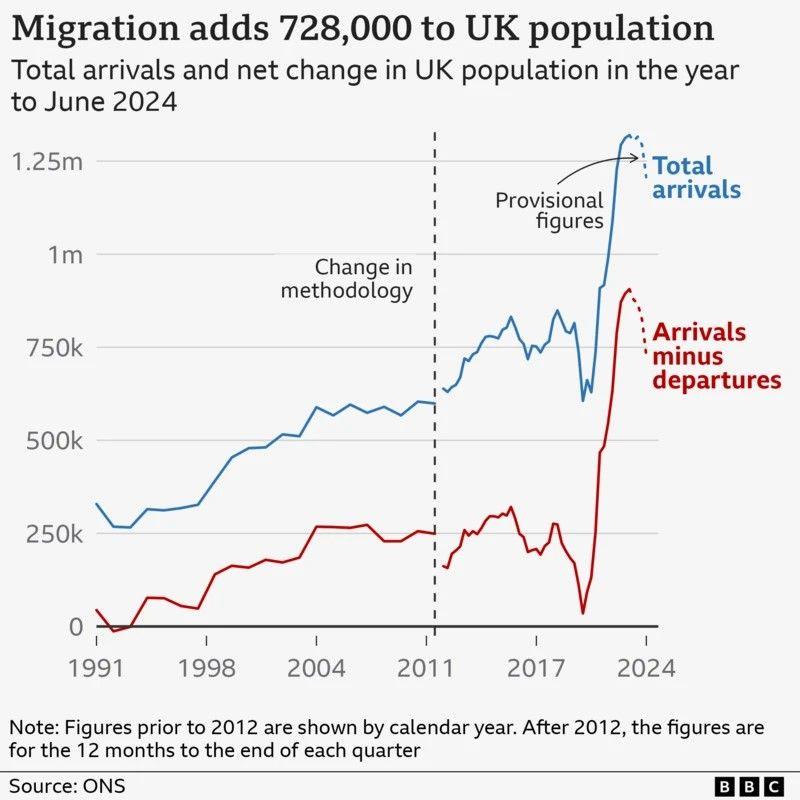LONDON — The United Kingdom saw its net migration figures halve in 2024, dropping to 431,000 from a record 866,000 in 2023. This marks the sharpest year-on-year fall in migration numbers since records began and reflects the government’s concerted effort to tighten immigration controls.
The dramatic decrease follows a series of policy changes aimed at reducing migration levels. Among the most impactful was the significant increase in the salary threshold for skilled worker visas—from £26,200 to £38,700—effectively disqualifying many lower-wage applicants. Other measures included tighter restrictions on family reunification and the removal of the right for many international students to bring dependents.
Sectors that traditionally rely on foreign labor, particularly health and care services, have felt the impact. The number of visas issued to health and care workers reportedly dropped by more than 85% over the year, raising concerns about future staffing shortages in the National Health Service and related fields.
In addition to reduced arrivals, an uptick in emigration contributed to the lower net migration figure. A notable number of international students, particularly from outside the EU, left the UK upon completing their studies, influenced by both post-study visa restrictions and evolving global opportunities.

The steep decline in migration has reignited debate across the political spectrum. While the government has claimed success in responding to public concerns over migration’s impact on housing and public services, critics warn that the new rules risk damaging the economy by exacerbating labor shortages in essential sectors.
Prime Minister Keir Starmer, who came to power after the changes were introduced, has inherited both the consequences and the political pressure to strike a new balance between control and economic need. Business groups, universities, and healthcare providers have called for greater flexibility in the immigration system to ensure the UK remains attractive and competitive.
As the government prepares to review immigration policy later this year, the 2024 data is likely to play a central role in shaping the direction of future reforms.
